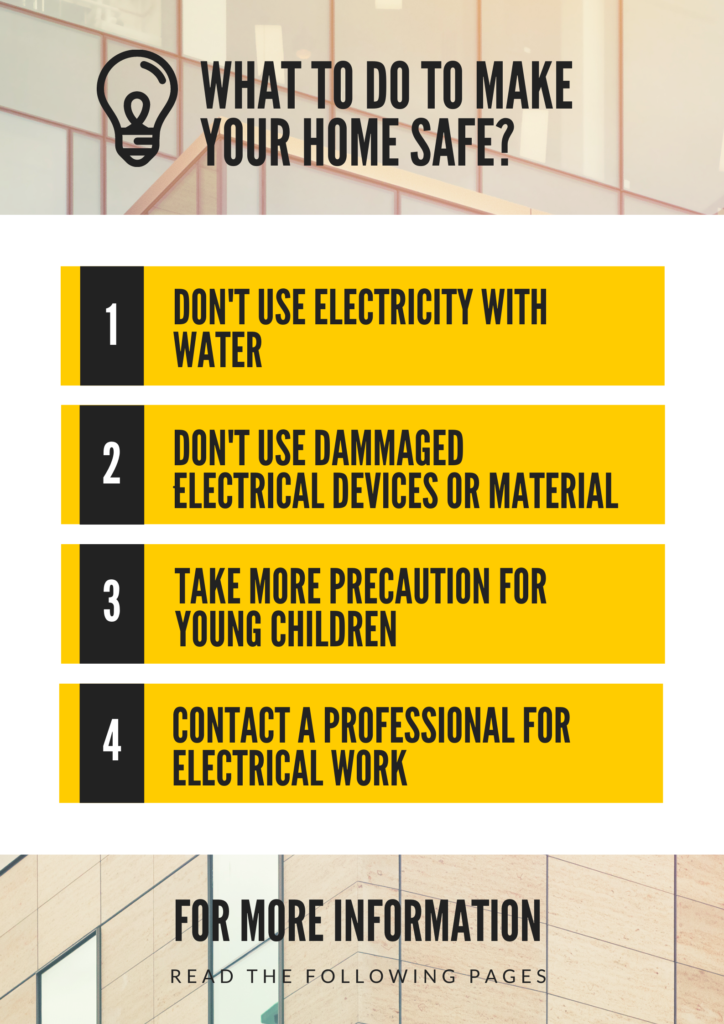
Electrical safety may not spark your interest, but it does not mean it is not an essential subject of conversation for us to conduct.
Electricity is an indispensable production that we use everywhere in our home. However, due to its invisible feature and its dangerous nature, we have to use it carefully.
The Electrical Safety Authority report mentions that in 2019, they registered more electrical fatalities at home than at work in Ontario. To avoid future fatalities, we need to follow safety rules.
There are many recommendations that you should be aware of to keep your family safe. Here are some tips and safety rules to avoid accidents and protect yourself at home.
If you are wet or in a room with a high humidity level, avoid using electrical devices!
Electricity and Water = DANGER. Therefore, always install electrical outlets with a protection system (Ground Fault Circuit Interrupter – GFCI) in any room near a water source such as bathrooms, laundry rooms and kitchens. The GFCI cuts the power source when it detects any danger.
All your electrical devices, such as radios, phones, tablets, etc., should be used as far away as possible from any water source.
Mow the lawn safely!
It is advisable to always plug the lawnmower into an outlet equipped with an earth fault protection system (GFCI) when using an electric mower.
Also, always check that the cable is not damaged and be careful not to mow over the cord. Use your mowers on dry grass and wear your shoes to reduce the risk of cuts and knocks.
Never throw water on an outlet that is on fire!
As a safety measure, always have the reflex to cut off your power supply at your panel in case of fire and call 911 immediately. Above all, do not put water on an outlet on fire. If you have a Class C dry chemical extinguisher, use it, and if the fire persists, then call 911 or Firefighter Services of Ontario.
Unplug your electrical appliances that use water before filling them!
Water conducts electricity. When filling appliances such as irons or kettles, make sure to unplug them first. Water can get inside and can create a short circuit and an electric shock.
Get the right power bar!
Connecting multiple devices that consume a lot of power can lead to overheating and overloading, so be careful when using a power strip.
To avoid and prevent electrical overloads, follow these simple steps:
- Use a power bar with a built-in circuit breaker.
- Plug devices into different outlets to create balance.
- If you are not using an appliance, there is no need to leave it plugged in, unplug it.
Always check your extension cords before you use them, and never use damaged cords!
Any damage, whether small or large, an extension cord can cause a fire or an accident. Avoid taking risks and throw away the damaged extension cord. Also, do not hide an extension cord under a carpet because it could overheat and create a fire.
Always keep extension cords out of the reach of small children, as they could chew on them and suffer a severe electric shock. Remember that the use of extension cords is temporary!
Never use a defective electrical device or defective electrical material!
It can be tempting to use a faulty electrical device after noticing it but avoid using it at all costs because a small defect can hide a large one. It would be rather wise to throw it away or have it repaired.
Before any repair, always unplug your devices. If you do not have the required expertise, contact a master or licensed electrician for assistance.
Always turn off the light or unplug the lamp before changing a light bulb!
Before changing a bulb, confirm that you have turned off the switch and that no one will turn it back on during your intervention. If you are using a light fixture that is not connected to an electrical outlet, unplug it before replacing the bulb. Always keep in mind to never handle any electrical device or light bulb with wet hands.
Unplug the toaster before trying to dislodge a stuck toast!
It takes a fraction of a second and is simple to do! Always unplug the toaster before dislodging a stuck toast as the utensils we use are electrical conductors, and the risk of electric shock could result.
Do not cut off the third prong of a plug!
Indeed, the third prong of a plug is necessary for the grounding of the device. The grounding prong protects against electrical faults. Always use a three-pronged extension cord and insert the plug properly into the extension’s outlet.
Pull-on the plug and not on the cable to unplug an electrical device!
It goes without saying that a damaged cable can cause an accident. Holding the plug will prevent damage to the power cord, and therefore potential accidents.
Before drilling a hole in the wall, locate electrical wires!
Always use a current detector to locate your electrical cables before drilling a wall to avoid damaging them and avoid starting a fire. If in doubt, do not hesitate to contact a Master Electrician or Licensed Electrical Contractor for the work.
Here is what to do if a circuit breaker on your distribution panel trips!
First, unplug any devices that stopped working after the circuit breaker tripped, then divide your devices into different circuits, and finally, turn the circuit breaker back on. If the problem persists, contact an electrician.
Always be sure to replace a blown fuse with a fuse rated for the circuit. (i.e. use a 10-amp fuse for a 10-amp circuit). You can also consider upgrading your electrical panel as needed.
Electricity and young children!
As you already know, babies and toddlers use their hands and mouths to experience the world, and they are very curious about their surroundings. Thus, regarding all the electrical devices that we use at home, the risk of electric shock is very present.
Here are some ways a child could get hurt. They can:
• Chew on the extension cords that are within reach
• Tripping over an extension cord
• Insert a metal object or their fingers into a socket
• Place a damaged cable in their mouth
• Place their fingers between the socket and the plug of an appliance.
Parents should take all necessary precautions to avoid preventable accidents and electric shocks to their little ones. Here are a few:
Install plug protectors on your electrical outlets!
Always install plug protectors on unused electrical outlets to prevent young children from inserting objects or their fingers into them. You can also use outlets with a built-in safety mechanism that makes it harder to insert objects into them.
Always keep electrical wires out of reach!
Always keep extension cords and electrical wires out of reach. Not only can young children get an electrical shock by biting and inserting these cables in their mouth, but they can pull on these wires, and the device could fall and hurt them.
Don’t forget!
- Electricity and Water = Dangerous Combination.
- Always contact an experienced Electrical Contractor for electrical work.
- If you or someone you know ever experience an electrical shock, seek medical attention immediately!
Contact us for a Free Estimate!
| GFCI | Cables | Extension Cords | Electrical Bar |
| Outlet | Plug Protectors | Sockets | Conductor |
| Electrical Contractor | Expansion | Circuit Breaker | Electrical Outlet |
| Electrical Wires | Switch | Electrical Device | Electrical Overloads |



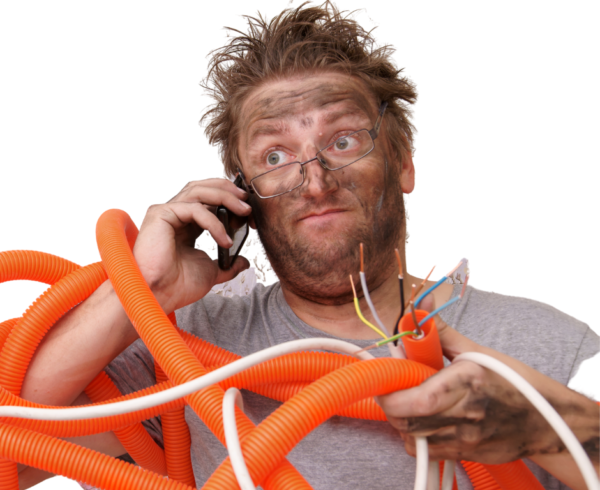

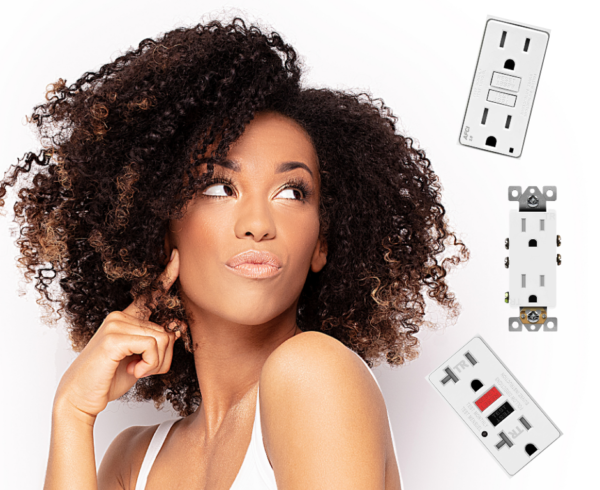

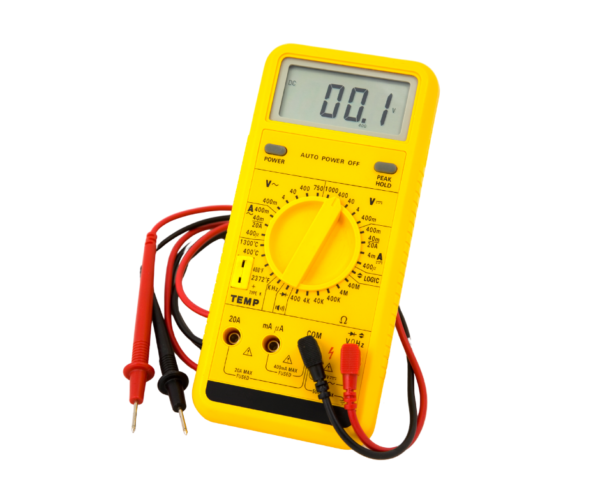

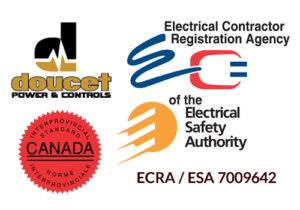
Leave a Comment